
- Green Office Model online course
- Case studies
- Membership Programme for Green Offices
- Ambassador Track
- Green Office Alumni Network
- GOM Sustainability Network
- Vision of the Movement

80 sustainability research topics for students to explore green campus issues
You’re planning your thesis, paper or capstone? You want to do a student research project with impact. We have outlined a range of sustainability research topics for you. The list specifically focuses on how to green your campus . Take action to make your university more sustainable!
Our list of sustainability research topics helps students investigate green campus issues.
Sustainability research topics: Education
Some sustainability research topics on education for sustainable development :
- What are the strengths and weaknesses of different definitions of sustainability education? Which definition could your university adopt?
- To what extent is sustainability education already implemented in the curriculum of your university?
- What are the strengths and limitations of advancing sustainability education within your curriculum?
- Where does your university stand with regards to sustainability education compared to other institutions of higher education?
- What is the demand among students for more, different or better sustainability education?
- How can existing sustainability projects on campus be used for educational purposes, e.g. visit solar cells on rooftops as part of engineering classes?
Sign-up to the FREE online course to establish your Green Office
5 weeks. One email per week. Unsubscribe at any time. By signing up, you agree to our data policy .
- What definition of sustainability research should your university embrace?
- To what extent is sustainability research already practised at your university?
- What are the strengths and weaknesses of the institution’s sustainability research portfolio compared to other institutions of higher education?
- What are the drivers of and barriers to sustainability research at your university?
- How could sustainability research help students to study sustainability issues on campus and inform practical change projects?
- What are the opportunities and costs associated with promoting sustainability research? What could a plan of action look like to strategically advance it?
Some sustainability research topics on community engagement and awareness:
- What are the perceptions of and attitudes towards sustainability by students and staff?
- What are ways to promote sustainable lifestyles among students?
- To what extent are students and staff aware of the UN Sustainable Development Goals (SDGs) ?
- How aware are students and staff about the institution’s sustainability ambitions?
- What are the benefits and disadvantages of approaches to communicate the university’s sustainability efforts better?
- What are the challenges to involve students and staff in the university’s sustainability efforts?
- Which ways to increase the engagement of the campus community exist, for example by organising sustainability events ?
For inspiration, read our post on 10 projects to engage students on the SDGs .
Explore sustainability topics for research papers on different issues related to greening campus operations:
- What are the opportunities and costs of improving the building insulations to save energy?
- What lighting systems exist on the market that are more energy efficient?
- What would a business case look like to install a new lighting system?
- Where are the main consumers of energy on campus?
- What innovative energy technologies are developed at the institution itself? To what extent could those be directly installed and tested in buildings?
- What lux values are sufficient for work and study places so that places are appropriately lit without wasting too much electricity?
- What are the strengths and weaknesses of different sustainable building standards?
- Which building standards would be most appropriate to inform the institution’s sustainable building policy?
- What are the costs and benefits associated with different types of green roofs?
- On which buildings could green roofs be installed?
- To what extent are catering and food products certified as organic or fair trade food?
- How much and why do students attach importance to organic and fair trade products sold in the cafeteria?
- How can students and employees be made more aware of the multiple benefits – e.g. health, environment, economics – of sustainable (organic, fair trade, local) food ?
- How much are students willing to pay for more organic or fair trade products?
- What types and amounts of waste are produced by whom and where at the institution?
- How did waste streams develop over the last years?
- What are innovative practices in reducing waste going to landfill or incineration? How could those be applied?
- What are the costs and benefits associated with waste recycling ?
- What options exist to switch from paper-based to more digital forms of working and studying to reduce paper consumption?
- What are the environmental, economic, and social benefits and disadvantages of different options to advance more digital working and studying?
More sustainability research topics on campus operations:
Biodiversity
- What species live at different campus locations?
- To what extent do students, faculty and staff value this biodiversity?
- What are ways to enhance biodiversity on campus?
Greenhouse-gase (GHG)
- What are the pros and cons of different GHG accounting standards?
- Which standard should the institution use to develop a GHG emissions inventory ?
- Where are GHG emissions released at the institution?
- How big is the institution’s GHG footprint?
Procurement
- What does sustainable procurement mean in the context of a university?
- How is procurement currently organised? To what extent are sustainability criteria already applied in tenders?
- To what extent could the university implement sustainability criteria that go beyond the legal minimum to advance the environmental, economic and social benefits of tenders?
- What are the largest consumers of water?
- What is the direct and indirect water-footprint of the institution?
- What are opportunities and costs to reduce water usage?
Transportation and mobility
- How do students and staff currently travel to the university and as part of their study or work?
- What is the environmental impact of these travel behaviours? How could the impact be reduced?
- What best practices exist among companies and other institutions of higher education to reduce staff travel or incentivize different travel behaviours?
Behaviour change
- What is the potential to reduce resource consumption through behaviour change?
- What are the best practices of behaviour change interventions at institutions of higher education?
- To what extent could these projects be also applied at your university?
Sustainability research topics on governance, strategy and reporting
Sustainability research topics on governance issues:
- What does sustainability mean for institutions of higher education?
- How does a comprehensive concept of a sustainable institution of higher education look like?
- How could the university’s long-term sustainability vision look like? How could this vision be realized through a roadmap?
- What are innovative ways to develop sustainability strategies for a university through a bottom-up approach?
- What ethical imperatives would demand that institutions of higher education care for their impact on the planet, people and profit?
- What are the responsibilities of institutions of higher education to contribute to global challenges, such as poverty, gender inequality, and climate change?
Monitoring and reporting
- What data is important to monitor the institution’s environmental impact? How can this data be collected and analysed?
- What are the advantages and disadvantages of different sustainability reporting standards?
- Which sustainability reporting standards should the university adhere to?
- What are efficient ways to organize sustainability reporting within the organization?
- What is the best way to communicate results among students, staff and outside actors?
- What are the strengths and weaknesses of different methodologies (e.g. payback or Net Present Value) to calculate the financial costs and benefits of sustainability investments?
- Which methodology should the institution apply?
- To what extent could sustainability projects be financed through a revolving loan fund?
- What are the possibilities to involve outside organizations through energy contracting?
- What subsidies are available at the European, national and city level to develop a green campus?
- How could the university use these financing options to advance its energy transition?
- What are approaches to integrate negative externalities into the accounting schemes of the university?
- What would be the opportunities, benefits and risks associated with establishing an energy company that’s owned by the university?
- What are the best practices to finance energy efficiency and renewable energy projects at public institutions around the world?
- How can incentive schemes be changed so that energy end-users directly benefit from reductions in energy usage?
We hope this list inspired you to find a sustainability topic for research papers.
- 12 sustainability documentaries to educate yourself and get inspired
- Green guide: 15 tips for a sustainable student lifestyle
- 12 sustainability teaching resources about green campuses
- How it works
"Christmas Offer"
Terms & conditions.
As the Christmas season is upon us, we find ourselves reflecting on the past year and those who we have helped to shape their future. It’s been quite a year for us all! The end of the year brings no greater joy than the opportunity to express to you Christmas greetings and good wishes.
At this special time of year, Research Prospect brings joyful discount of 10% on all its services. May your Christmas and New Year be filled with joy.
We are looking back with appreciation for your loyalty and looking forward to moving into the New Year together.
"Claim this offer"
In unfamiliar and hard times, we have stuck by you. This Christmas, Research Prospect brings you all the joy with exciting discount of 10% on all its services.
Offer valid till 5-1-2024
We love being your partner in success. We know you have been working hard lately, take a break this holiday season to spend time with your loved ones while we make sure you succeed in your academics
Discount code: RP0996Y

Useful Links
How much will your dissertation cost?
Have an expert academic write your dissertation paper!
Dissertation Services

Get unlimited topic ideas and a dissertation plan for just £45.00
Order topics and plan

Get 1 free topic in your area of study with aim and justification
Yes I want the free topic

20 Dissertation Topics on Sustainability and Green Technology
Published by Carmen Troy at January 9th, 2023 , Revised On May 17, 2024
Introduction
Looking for interesting and manageable topics on sustainability and green technology for your dissertation or thesis? Well, you have come to the right place.
The subject of sustainability, green technology, and environmental friendliness has gained tremendous importance over the last few years – thanks to the ever-increasing pollution, climate change, and high production costs throughout the world.
Without wasting any more of your time, here are the 20+ dissertation topic ideas in this trendy field so you can choose the one that is not only intriguing but also manageable for you.
These topics have been developed by PhD writers of our team , so you can trust to use these topics for drafting your dissertation.
You may also want to start your dissertation by requesting a brief research proposal from our writers on any of these topics, which includes an introduction to the topic, research question, aim and objectives, literature review, and the proposed methodology of research to be conducted. Let us know if you need any help in getting started.
Check our dissertation examples to get an idea of how to structure your dissertation .
Review the full list of dissertation topics here.
Latest Research Topics on Sustainability and Green Technology
Topic 1: the role of artificial intelligence (ai) and green technology in the develpment of smart and sustainable towns.
Research Aim: This study intends to find the role of artificial intelligence (AI) and green technology in developing smart and sustainable towns. It will review the concepts of smart and sustainable towns to show their importance in the modern era to reduce global warming. Then it will assess the role of AI by analysing various machine learning and deep learning models to show how these models can help develop smart and sustainable towns. Lastly, it will review what work has already been done in this area and what should be done.
Topic 2: Impact of Research and Development (R&D) Expenditure in Green Technology on the Sustainability Outcomes of the Construction Industry- A Case of Malaysian Construction Industry
Research Aim: This study intends to analyse the impact of research and revelopment (R&D) expenditure on green technology on the sustainability outcomes of the construction industry in Malaysia. It will review the current green technology used in the Malaysian construction industry and its development. Moreover, it will show how the construction industry is spending to develop new green technology and how much it requires to make it completely sustainable. It will also identify various national and international sources which can invest in this industry to make it more sustainable.
Topic 3: What are the Motivating and Demotivating Factors for Green Supply Chain Practices? An Exploratory Study Finding the Factors Affecting Green Supply Chain Practices in the UK
Research Aim: This research will identify various motivating and demotivating factors (return on green investment, production output, local and global competitiveness, political support, international support, investor support, etc.) for green supply chain practices. It will study various industries in the UK, such as construction, hotel industry, retail industry, etc., find out how the abovementioned factors affected their interest in green technology and green supply chain practices. Moreover, it will assess the work done in this area and how various institutions can motivate these industries.
Topic 4: Influence of Green Advertising on the Consumer View of Green Technology and Sustainability in the US
Research Aim: This study shows the impact of green advertising on the consumer perception of green technology and sustainability. It will assess how various components of green advertising work and how they affect the consumer perception of the need for green technology. Moreover, it will analyse different green advertising strategies used by companies in the US to influence consumer perception and how these strategies can be improved to make US consumers more interested in the products, which are products of an environment-friendly production process.
Topic 5: Green Economy a Necessity? Impact of Green Technology on Sustainable Economic Growth and Development- A Case of ASEAN Economies
Research Aim: It proposes a framework to analyse the impact of green technology on sustainable economic growth and development. It will show whether the green economy is essential for growth and development or not. It will assess various effects of green technology on the economy and ecology. And show how improving ecology can benefit human development, which can be good for long-term economic growth in the ASEAN countries. Lastly, it will analyse the current progress of these countries in creating a green economy.
Topic 6: The Potential of Biomimicry in Green Technology Innovation
Research Aim: This research explores and evaluates the potential applications of biomimicry principles in driving innovation within green technology. The purpose of the study is to enhance sustainability, resource efficiency, and environmental conservation.
Topic 7: Circular Economy and its Application in Achieving Sustainability Targets
Research Aim: This study investigates the concept of the circular economy and its practical implementation strategies. It focuses on the effectiveness of the circular economy in facilitating the achievement of sustainability targets across various industries and sectors.
Topic 8: Sustainable Water Management in the Era of Climate Change
Research Aim: This research examines the challenges and opportunities associated with sustainable water management in the context of climate change. The study identifies effective strategies, technologies, and policies to ensure resilient and equitable access to clean water resources while mitigating the impacts of climate variability and extreme events.
Topic 9: The Role of Information Technology in Advancing Sustainability Initiatives
Research Aim: This study investigates the multifaceted role of information technology (IT) in advancing sustainability initiatives across various sectors. It explores how IT innovations, such as big data analytics, IoT (Internet of Things), blockchain, and AI (Artificial Intelligence), can contribute to enhancing resource efficiency and promoting sustainable development goals.
Topic 10: Corporate Social Responsibility and Green Technology Adoption: A Case Study Analysis
Research Aim: This study aims to conduct a comprehensive case study analysis to examine the relationship between corporate social responsibility (CSR) practices and the adoption of green technologies within organisations. It examines understanding the motivations and outcomes associated with integrating sustainability initiatives into corporate strategies and operations.
Topic 11: Impact of Smart Grid Technologies for Sustainable Energy Management
Research Aim: This research assesses the impact of smart grid technologies on sustainable energy management. The study focuses on understanding how the integration of advanced grid infrastructure, renewable energy sources, energy storage systems, and demand-side management techniques contributes to increasing energy efficiency, grid reliability, and environmental sustainability.
COVID-19 Sustainability and Green Technology Research Topics
Topic 1: covid-19 and the need to expand sustainable energy.
Research Aim: It’s high time to expand sustainable energy during COVID-19.
Topic 2: COVID-19 and the environment
Research Aim: This study will focus on the positive and negative impacts of COVID-19 on the environment.
Topic 3: Economic expenditure on the green environment during COVID-19
Research Aim: This study will review the economic expenditure and plans for the green environment during COVID-19.
Topic 4: The green economy after COVID-19
Research Aim: This study will analyse the current issues related to green technology and predict the future of a green environment after COVID-19.
Dissertation Topics Ideas on Sustainability and Green Technology on Global Impact
Topic 1: research on sustainable gardens.
Research Aim: This research aims to conduct research on creating sustainable gardens and identify their benefits.
Topic 2: Sustainable outdoor designs using recycled materials
Research Aim: This research aims to identify various methods of creating sustainable outdoor designs using recycled materials and identify their benefits.
Topic 3: Pollution-free disposal and recycling of trash
Research Aim: This research aims to identify various methods to ensure pollution-free disposal and recycling of trash
Topic 4: Importance of gardening- awareness and ideas for the city, terrace/roof gardening
Research Aim: This research aims to address the importance of gardening and its awareness among the public. It will also focus on identifying cost-effective and innovative ideas for the city, as well as terrace/roof gardening.
Topic 5: Examining the economic impacts of green technology
Research Aim: The research will involve comparing the costs incurred in developing green energy and the economic benefits. The services will be saved once alternative forms of materials and energy sources are used. It will be relevant in identifying whether it is worth investing in green technology from an economic perspective. It will also help in developing supportive policies that guide green technology.
Topic 6: How do national and regional politics affect environmental sustainability?
Research Aim: This research study will analyse the role of politics in the environment. It will explore the positive or negative impacts of individual political inclinations.
Topic 7: How sustainable is the environment in the current and forthcoming eras?
Research Aim: This research will analyse global trends and their impacts on environmental trends. Developments such as increasing population, climate change, and using various materials affect the people. It will inform about how sustainability measures can be structured to align with the trends.
Topic 8: Adoption of green energy by low-end users
Research Aim: The research will be based on realising a market niche that cannot afford or are not willing to spend on an expensive product. Additionally, the embrace of some advanced technologies varies across classes, mainly based on exposure. There is also the notion that green technology can be expensive, making the stated users reluctant to use it. Accordingly, the research will focus on the factors that give users their respective levels of green technology use.
Topic 9: How green technology can affect organisational processes
Research Aim: This research will analyse how processes that can include procuring and sourcing, producing, sales, marketing, and delivering products, among others, can be impacted once green technology is introduced. It will help analyse cost and time effectiveness and the satisfaction of the organisation’s stakeholders. It can help recommend structural changes when an organisation is considering green technology.
Topic 10: To what extent does green technology contribute to environmental sustainability?
Research Aim: notably, several factors are contributing to environmental degradation and pollution. While green technology has been identified in previous research to ensure sustainability, its contribution can be compared with other factors. Accordingly, recommendations can be made about whether it is the absolute solution to sustainability.
Topic 11: Green technology and global environmental sustainability frameworks
Research Aim: The study will assess how the frameworks affect the use of green technology. Various global environmental practices are commonly developed. The research will suggest any amendments to the frameworks to positively correlate them with green technology. Also, the topic will evaluate how the frameworks are implemented in various regions.
Topic 12: Green technology practices in developing countries
Research Aim: The research will explore the extent to which developing countries use and promote green technology. They are characterised by having a lower economy. The priority they have on sustainability will be established.
Topic 13: How do policies affect the use of green technology in a country?
Research Aim: The research acknowledges that regulatory bodies devise policies to guide various industries. The guidelines can be supportive or suppressive in the development and use of green technology. For instance, the bodies’ incentives can encourage green technology, while factors like high taxation can discourage it. Therefore, focusing on a particular country’s policies can be insightful into the level at which the technology is incorporated.
Topic 14: Incentives for green technology and environmental sustainability
Research Aim: The purpose of this study is to determine how green technology can be promoted among users and manufacturers. It will first identify the challenges that users can face when using and applying the technology. It will also evaluate the level of sensitisation about green technology that people in a region have. The various stakeholders can execute the incentives for environmental sustainability.
How Can ResearchProspect Help?
ResearchProspect writers can send several custom topic ideas to your email address. Once you have chosen a topic that suits your needs and interests, you can order for our dissertation outline service , which will include a brief introduction to the topic, research questions , literature review , methodology , expected results , and conclusion . The dissertation outline will enable you to review the quality of our work before placing the order for our full dissertation writing service !
More Research Titles on Sustainability and Green Technology
Topic 1: what roles do ngos have in environmental sustainability and green technology.
Research Aim: The research will establish how NGOs can be incorporated into sustainability. NGOs have distinct objectives. While some are specific to environmental conservation, others focus on aspects that indirectly affect the environment positively or negatively. The study will then suggest how the NGOs can be motivated to advance their operations and promote green technology.
Topic 2: Impactful green thinking to achieve sustainability
Research Aim: The research analyses human behaviour and issues that can promote sustainability. It explores how people can change their perspective on the environment and take measures at individual and collective levels. It will recommend some habitual changes that can positively impact the environment.
Topic 3: A holistic approach to environmental sustainability
Research Aim: Sustainability comprises various factors, ranging from behavioural, resources, technological, and procedural. Most studies have focused on particular sets of characteristics. However, it can be intriguing how integrating sustainability factors can be achieved. Also, it will be realised if implementing some measures of sustainability has any correlation to others.
Topic 4: Can there be a balance between lifestyle and green technology?
Research Aim: the study will assess the relationship between current lifestyle and green technology. It will be relevant in identifying the personal understanding of green technology’s contribution and how people are ready to adjust their lifestyle to technology. It will further show how green technology affects lifestyles.
Topic 5: How do businesses perceive green energy and environmental sustainability?
Research Aim: The research aims to identify how profit-making organisations approach green technology. It will focus on whether they find it less costly and useful. Also, it will establish whether they find products that involve green technology are usually marketable. Further, it will identify the organisation’s preference for the working environment, whether in regions that promote environmental sustainability or those that do not.
Topic 6: Examining sustainability policies in developed and developing countries
Research Aim: The research will compare regulations instituted in the two sets of countries. It will also assess the extent of implementation of the policies in the countries.
Topic 7: Challenges facing green technology as one of the drivers towards sustainability
Research Aim: The research will be based on green technology recognition as a crucial attribute of environmental sustainability. Despite the assertion, the technology has not attained universal coverage as it would be more impactful. The challenges can vary in economic, social, geographical, and regulatory aspects, and it is recommended that the research focus on a particular region. The results can also be analysed if there is a conflict of to identify any general challenges in the areas.
Topic 8: What is the consumer perspective towards green production?
Research Aim: Businesses target to satisfy the needs of consumers. The study will assess whether the consumer has a force towards producers that can make the latter inclined towards using green technology. This research study will essentially focus on the consumables industry.
Topic 9: Stakeholders’ contribution to green technology
Research Aim: The research will establish all the stakeholders in green energy. It will reveal their interests and drivers towards green technology. There will be an insight into whether there is a conflict of interest between the stakeholders and how it can be resolved. It will also help identify how the stakeholders can collaborate and integrate their resources and ideas.
Topic 10: Current trends in green technology and the future of technology
Research Aim: the research will aim to overview how green energy has been advancing over time. The trend will then help in predicting the future of green technology. Besides, it will be informative about the contribution green energy has had on environmental sustainability at various levels. It will then make recommendations about the optimum technology based on the available information and developments.
Also Read: Dissertation Topics in Engineering Management
How ResearchProspect Can Help You?
We are aware of the problems students are likely to face when it comes to finding a suitable topic in sustainability and green technology. Therefore our expert writers are always looking forward to assisting you with your topic search.
We hope you were able to find a suitable topic from the 20+ topic suggestions in green technology and sustainability provided in this article. But even if you didn’t find any of these topics suitable for your needs, you can always contact us to get custom topic ideas from our expert writers.
Our team of expert writers in any field you would like your work to be carried out in will facilitate you and ensure you get the grades that you are worthy of and deserve.
Important Notes:
As a student of sustainability and green technology looking to get good grades, it is essential to develop new ideas and experiment with existing sustainability and green technology theories – i.e., to add value and interest to your research topic.
Sustainability and green technology are vast and interrelated to many other academic disciplines like environmental engineering . That is why it is imperative to create a sustainability and green technology dissertation topic that is particular, sound, and solves a practical problem that may be rampant in the field.
We can’t stress how important it is to develop a logical research topic based on your fundamental research. There are several significant downfalls to getting your issue wrong; your supervisor may not be interested in working on it, the topic has no academic creditability, the research may not make logical sense, and there is a possibility that the study is not viable.
This impacts your time and efforts in writing your dissertation , as you may end up in a cycle of rejection at the initial stage of the dissertation. That is why we recommend reviewing existing research to develop a topic, taking advice from your supervisor, and even asking for help in this particular stage of your dissertation.
While developing a research topic, keeping our advice in mind will allow you to pick one of the best sustainability and green technology dissertation topics that fulfil your requirement of writing a research paper and add to the body of knowledge.
Therefore, it is recommended that when finalising your dissertation topic, you read recently published literature to identify gaps in the research that you may help fill.
Remember- dissertation topics need to be unique, solve an identified problem, be logical, and be practically implemented. Please look at some of our sample sustainability and green technology dissertation topics to get an idea for your dissertation.
How to Structure Your Dissertation on Sustainability & Green Technology
A well-structured dissertation can help students to achieve a high overall academic grade.
- A Title Page
- Acknowledgments
- Declaration
- Abstract: A summary of the research completed
- Table of Contents
- Introduction : This chapter includes the project rationale, research background, key research aims and objectives, and the research problems. An outline of the structure of a dissertation can also be added to this chapter.
- Literature Review : This chapter presents relevant theories and frameworks by analysing published and unpublished literature on the chosen research topic to address research questions . The purpose is to highlight and discuss the selected research area’s relative weaknesses and strengths whilst identifying any research gaps. Break down the topic and binding terms, which can positively impact your dissertation and your tutor.
- Methodology : The data collection and analysis methods and techniques employed by the researcher are presented in the Methodology chapter, which usually includes research design , research philosophy, research limitations, code of conduct, ethical consideration, data collection methods, and data analysis strategy .
- Findings and Analysis : The findings of the research are analysed in detail in the Findings and Analysis chapter. All key findings/results are outlined in this chapter without interpreting the data or drawing any conclusions. It can be useful to include graphs, charts, and tables in this chapter to identify meaningful trends and relationships.
- Discussion and Conclusion : The researcher presents his interpretation of results in this chapter and states whether the research hypothesis has been verified or not. An essential aspect of this section of the paper is to link the results and evidence from the literature. Recommendations with regard to the implications of the findings and directions for the future may also be provided. Finally, a summary of the overall research, along with final judgments, opinions, and comments, must be included in the form of suggestions for improvement.
- References : This should be completed following your University’s requirements
- Bibliography
- Appendices : Any additional information, diagrams, and graphs used to complete the dissertation but not part of the dissertation should be included in the Appendices chapter. Essentially, the purpose is to expand the information/data.
About ResearchProspect Ltd
ResearchProspect is a UK-based academic writing service that provides help with Dissertation Proposal Writing , PhD. Proposal Writing , Dissertation Writing , Dissertation Editing, and Improvement .
Our team of writers is highly qualified. They are experts in their respective fields. They have been working for us for a long time. Thus, they are well aware of the issues and the trends of the subject they specialise in.

Free Dissertation Topic
Phone Number
Academic Level Select Academic Level Undergraduate Graduate PHD
Academic Subject
Area of Research
Frequently Asked Questions
How to find sustainability and green technology dissertation topics.
For sustainability and green technology dissertation topics:
- Research recent environmental challenges.
- Explore innovative green solutions.
- Examine policy and industry trends.
- Analyse potential socio-economic impacts.
- Focus on interdisciplinary approaches.
- Select a topic resonating with your passion and expertise.
You May Also Like
Most students find it difficult to select the perfect International Business Dissertation Topic for their degree dissertations. In fact, most students choose narrow topics for their international business research papers as a result of the depth and breadth of the field.
Need interesting and manageable human rights law dissertation topics or thesis? Here are the trending human rights law dissertation titles so you can choose the most suitable one.
Need interesting coronavirus (Covid-19) nursing dissertation topics? Here are the trending dissertation titles so you can choose the most suitable one.
As Featured On

USEFUL LINKS
LEARNING RESOURCES

COMPANY DETAILS

Splash Sol LLC
- How It Works
Environmental Studies Thesis Topics

300 Environmental Studies Thesis Topics and Ideas
Environmental studies is a broad and interdisciplinary field that addresses some of the most pressing issues facing our planet today. From climate change and biodiversity loss to water resource management and environmental policy, the range of topics is vast and ever-evolving. To assist students in finding the perfect topic for their thesis, we have compiled a comprehensive list of 300 environmental studies thesis topics, divided into 10 key categories. These topics reflect current issues, explore recent trends, and anticipate future directions in environmental studies. Whether you are interested in sustainability, green technology, or environmental justice, this list provides diverse options to inspire your academic journey.
Academic Writing, Editing, Proofreading, And Problem Solving Services
Get 10% off with 24start discount code, 1. climate change and global warming thesis topics.
- The role of carbon pricing in reducing greenhouse gas emissions.
- Investigating the impact of climate change on global agricultural productivity.
- Exploring climate adaptation strategies for coastal cities.
- The effects of rising sea levels on small island nations: A case study.
- Examining the role of reforestation in carbon sequestration.
- The impact of extreme weather events on infrastructure resilience.
- Climate change and food security: Challenges and solutions.
- The role of international agreements in mitigating climate change.
- Exploring the potential of carbon capture and storage (CCS) technologies.
- Investigating the relationship between climate change and biodiversity loss.
- The role of renewable energy in combating global warming.
- Assessing the impact of climate change on freshwater availability.
- Exploring the social and economic impacts of climate-induced migration.
- The effectiveness of climate policies in reducing global emissions.
- Investigating the impact of deforestation on the global carbon cycle.
- The role of environmental education in climate change awareness.
- Exploring the link between climate change and the spread of infectious diseases.
- The impact of climate change on marine ecosystems: A case study of coral reefs.
- Climate change and its impact on global economic systems.
- The role of green infrastructure in urban climate adaptation.
- Investigating the contribution of livestock farming to greenhouse gas emissions.
- The future of electric vehicles in reducing carbon footprints.
- Climate change-induced natural disasters: Risk assessment and management strategies.
- The role of climate modeling in predicting future environmental changes.
- Exploring the effectiveness of climate-smart agriculture.
- Investigating climate change denial and its impact on environmental policies.
- The role of renewable energy policies in addressing climate change.
- The impact of climate change on indigenous communities and their traditional knowledge.
- Climate change communication strategies: Raising public awareness.
- Exploring the role of technology in mitigating the effects of climate change.
2. Biodiversity and Conservation Thesis Topics
- The impact of habitat loss on endangered species populations.
- Investigating the role of protected areas in preserving biodiversity.
- Exploring the effectiveness of wildlife corridors in promoting species migration.
- The role of biodiversity hotspots in global conservation efforts.
- Investigating the impact of invasive species on local ecosystems.
- The role of community-based conservation in protecting endangered species.
- Exploring the potential of genetic diversity in species conservation.
- Investigating the impact of climate change on species distribution.
- The role of zoos and botanical gardens in biodiversity conservation.
- Exploring the effects of habitat fragmentation on wildlife populations.
- The impact of deforestation on tropical biodiversity.
- Investigating marine biodiversity loss due to overfishing.
- The role of environmental policies in protecting biodiversity.
- Exploring the use of technology in monitoring endangered species.
- The impact of urbanization on local wildlife populations.
- Investigating the role of indigenous knowledge in conservation efforts.
- Exploring the relationship between biodiversity and ecosystem services.
- The impact of poaching on wildlife conservation efforts.
- Investigating the role of ecological restoration in biodiversity recovery.
- The impact of plastic pollution on marine biodiversity.
- The role of rewilding in restoring ecosystems and wildlife populations.
- Investigating the effectiveness of conservation education programs.
- Exploring the potential of citizen science in biodiversity monitoring.
- The role of international agreements in biodiversity protection.
- Investigating the impact of agricultural expansion on biodiversity.
- The role of climate refugia in conserving biodiversity under climate change.
- Exploring the effectiveness of species reintroduction programs.
- Investigating the role of biodiversity offsets in mitigating development impacts.
- The impact of coral bleaching on marine biodiversity.
- Exploring the role of sustainable tourism in biodiversity conservation.
3. Environmental Policy and Governance Thesis Topics
- Investigating the role of international environmental agreements in addressing global issues.
- The effectiveness of environmental impact assessments in policy development.
- Exploring the role of environmental NGOs in shaping policy decisions.
- The impact of environmental regulations on corporate sustainability practices.
- Investigating the role of public participation in environmental decision-making.
- The effectiveness of the Paris Agreement in reducing global carbon emissions.
- Exploring the challenges of enforcing environmental laws in developing countries.
- Investigating the role of indigenous rights in environmental governance.
- The impact of environmental policies on sustainable development in urban areas.
- Exploring the effectiveness of carbon trading schemes in reducing emissions.
- The role of environmental justice in shaping policy decisions.
- Investigating the role of local governments in promoting sustainable practices.
- The impact of environmental regulations on economic development.
- Exploring the role of corporate environmental responsibility in policy development.
- Investigating the role of green political movements in shaping environmental policies.
- The impact of environmental policies on the global energy transition.
- Exploring the effectiveness of ecosystem-based management in policy development.
- The role of international organizations in promoting environmental governance.
- Investigating the impact of environmental litigation on policy enforcement.
- Exploring the challenges of implementing climate policies in developing countries.
- The role of environmental education in shaping public policy.
- Investigating the impact of trade policies on environmental sustainability.
- The effectiveness of protected area policies in conserving biodiversity.
- Exploring the role of environmental diplomacy in resolving global environmental conflicts.
- The impact of environmental governance on the management of natural resources.
- Investigating the role of environmental policies in addressing water scarcity.
- Exploring the effectiveness of sustainable urban planning policies.
- The role of multilateral environmental agreements in global sustainability efforts.
- Investigating the role of corporate lobbying in shaping environmental policies.
- Exploring the impact of environmental regulations on industrial pollution.
4. Sustainable Development Thesis Topics
- Exploring the role of sustainable agriculture in achieving food security.
- Investigating the impact of sustainable urban planning on environmental sustainability.
- The role of green buildings in promoting energy efficiency and sustainability.
- Exploring the challenges of achieving the United Nations Sustainable Development Goals (SDGs).
- Investigating the role of corporate sustainability strategies in promoting sustainable development.
- The impact of sustainable transportation on reducing urban air pollution.
- Exploring the role of renewable energy in achieving sustainable development.
- Investigating the potential of circular economy models for sustainable resource management.
- The role of education in promoting sustainable development practices.
- Exploring the relationship between economic growth and environmental sustainability.
- Investigating the role of sustainable tourism in promoting environmental conservation.
- The impact of sustainable consumption on reducing global resource depletion.
- Exploring the role of sustainable development in addressing climate change.
- Investigating the challenges of implementing sustainable business practices.
- The role of public-private partnerships in promoting sustainable development.
- Exploring the potential of eco-friendly technologies in achieving sustainability.
- Investigating the role of local communities in promoting sustainable development.
- The impact of sustainable supply chains on global business practices.
- Exploring the role of green infrastructure in urban sustainability.
- Investigating the role of gender equality in promoting sustainable development.
- The role of sustainable finance in promoting environmental sustainability.
- Exploring the impact of sustainable development on global poverty reduction.
- Investigating the role of corporate social responsibility (CSR) in sustainable development.
- The impact of environmental education on promoting sustainable lifestyles.
- Exploring the role of innovation in achieving sustainable development goals.
- Investigating the challenges of balancing economic development with environmental conservation.
- The role of indigenous knowledge in promoting sustainable resource management.
- Exploring the impact of population growth on sustainable development efforts.
- Investigating the role of climate resilience in promoting sustainable development.
- The role of policy frameworks in achieving sustainable development goals.
5. Renewable Energy and Green Technology Thesis Topics
- Investigating the potential of solar energy in reducing global carbon emissions.
- Exploring advancements in wind energy technology for sustainable power generation.
- The role of green technology in promoting energy efficiency in urban areas.
- Investigating the feasibility of offshore wind farms for large-scale renewable energy production.
- Exploring the future of hydrogen fuel cells as a renewable energy source.
- Investigating energy storage solutions for intermittent renewable energy sources.
- The role of renewable energy in achieving energy security in developing countries.
- Exploring advancements in bioenergy and its potential for sustainable development.
- Investigating the integration of renewable energy systems into existing power grids.
- The role of government policies in promoting renewable energy adoption.
- Exploring the environmental impact of large-scale hydropower projects.
- Investigating the role of geothermal energy in reducing dependency on fossil fuels.
- The potential of tidal and wave energy as alternative renewable energy sources.
- Exploring advancements in energy-efficient building technologies.
- Investigating the impact of renewable energy on rural electrification.
- The role of smart grids in facilitating the transition to renewable energy.
- Exploring the future of solar photovoltaics in achieving global energy goals.
- Investigating renewable energy solutions for off-grid communities.
- The impact of wind farm noise on surrounding communities: Mitigation strategies.
- Exploring advancements in green technology for sustainable transportation.
- Investigating renewable energy policies in the European Union and their impact on energy consumption.
- The role of renewable energy in reducing greenhouse gas emissions from transportation.
- Exploring the potential of waste-to-energy technologies for sustainable waste management.
- Investigating the environmental impact of biomass energy production.
- The role of public-private partnerships in promoting green technology innovations.
- Exploring the economic feasibility of renewable energy projects in developing countries.
- Investigating the impact of climate change on renewable energy potential.
- Exploring advancements in solar-powered desalination technologies for water-scarce regions.
- Investigating the role of electric vehicles in reducing urban air pollution.
- Exploring the potential of smart cities to promote energy efficiency and sustainability.
6. Water Resources and Management Thesis Topics
- Investigating sustainable water management strategies for urban areas.
- Exploring the impact of climate change on global freshwater availability.
- The role of water conservation technologies in reducing agricultural water use.
- Investigating the effectiveness of integrated water resource management (IWRM) approaches.
- Exploring advancements in desalination technologies for water-scarce regions.
- Investigating the role of water recycling in addressing global water scarcity.
- The impact of industrial water use on freshwater ecosystems.
- Exploring sustainable groundwater management techniques for agricultural regions.
- Investigating the role of wetlands in maintaining water quality and biodiversity.
- The impact of urbanization on stormwater management and water quality.
- Investigating the role of transboundary water agreements in promoting sustainable water management.
- Exploring the potential of rainwater harvesting systems for water conservation.
- Investigating the impact of pollution on freshwater ecosystems: Case studies.
- The role of water pricing policies in promoting sustainable water use.
- Investigating sustainable irrigation practices for improving water efficiency in agriculture.
- Exploring the role of green infrastructure in managing urban stormwater.
- Investigating the effects of climate change on water availability in arid regions.
- The role of community-based water management in rural development.
- Exploring the impact of water scarcity on food security in developing countries.
- Investigating the role of technology in improving water-use efficiency.
- The impact of dam construction on river ecosystems: A case study analysis.
- Investigating the role of policy in promoting sustainable water resource management.
- Exploring advancements in wastewater treatment technologies for water reuse.
- Investigating the impact of agricultural runoff on freshwater pollution.
- The role of remote sensing in monitoring water resources in developing regions.
- Exploring the future of sustainable urban water management in smart cities.
- Investigating the role of international cooperation in addressing global water crises.
- The impact of deforestation on watershed management and water quality.
- Exploring advancements in nanotechnology for water purification.
- Investigating the role of climate resilience in water resource management strategies.
7. Pollution and Environmental Health Thesis Topics
- Investigating the impact of air pollution on public health in urban areas.
- Exploring the effectiveness of policies aimed at reducing industrial pollution.
- Investigating the effects of plastic pollution on marine ecosystems.
- The role of environmental regulations in controlling hazardous waste disposal.
- Exploring advancements in air quality monitoring technologies for urban areas.
- Investigating the impact of water pollution on human health: A case study analysis.
- The role of international agreements in addressing global pollution issues.
- Investigating the environmental impact of electronic waste disposal.
- Exploring the relationship between soil pollution and agricultural productivity.
- Investigating the role of public awareness campaigns in reducing plastic waste.
- The impact of agricultural pesticides on freshwater ecosystems.
- Exploring sustainable waste management practices for reducing landfill pollution.
- Investigating the role of green chemistry in reducing industrial pollution.
- Exploring the potential of biodegradable plastics in reducing plastic waste.
- The impact of urban air pollution on respiratory diseases: A case study analysis.
- Investigating the role of legislation in controlling pollution from the transportation sector.
- The effectiveness of carbon capture and storage (CCS) technologies in reducing air pollution.
- Exploring advancements in soil remediation techniques for contaminated land.
- Investigating the impact of light pollution on nocturnal wildlife.
- The role of environmental policies in reducing water pollution from agricultural runoff.
- Investigating the potential of phytoremediation for cleaning up contaminated soil.
- Exploring the effects of microplastics on aquatic ecosystems and human health.
- Investigating sustainable alternatives to single-use plastics in reducing waste.
- The impact of industrial pollution on biodiversity in developing countries.
- Exploring advancements in pollution control technologies for heavy industries.
- Investigating the role of corporate social responsibility in reducing industrial pollution.
- The effectiveness of public transportation systems in reducing urban air pollution.
- Exploring the role of environmental justice in addressing pollution-related health disparities.
- Investigating the effects of noise pollution on wildlife behavior.
- The impact of pollution on coral reefs: A case study analysis of mitigation strategies.
8. Environmental Economics Thesis Topics
- Investigating the role of carbon pricing in promoting sustainable development.
- Exploring the economic impact of climate change on coastal regions.
- The role of green taxes in reducing environmental degradation.
- Investigating the potential of ecosystem services in shaping economic policies.
- Exploring the cost-benefit analysis of renewable energy investments.
- Investigating the economic implications of biodiversity loss.
- The role of environmental policies in promoting economic sustainability.
- Exploring the relationship between economic growth and environmental degradation.
- Investigating the role of eco-labeling in promoting sustainable consumption.
- The impact of environmental regulations on industrial competitiveness.
- Exploring the economic potential of circular economy models.
- Investigating the role of public-private partnerships in financing environmental initiatives.
- The role of sustainable finance in promoting green investments.
- Investigating the impact of environmental policies on job creation in the renewable energy sector.
- Exploring the economic feasibility of large-scale reforestation projects.
- Investigating the role of green bonds in financing sustainable infrastructure projects.
- The economic impact of water scarcity on agricultural production.
- Exploring the potential of carbon credits in reducing greenhouse gas emissions.
- Investigating the role of international trade in promoting environmental sustainability.
- The economic benefits of ecosystem restoration projects: A case study analysis.
- Exploring the role of environmental economics in shaping climate policy.
- Investigating the impact of energy efficiency measures on economic growth.
- The role of environmental taxes in promoting resource conservation.
- Exploring the economic challenges of transitioning to a low-carbon economy.
- Investigating the role of environmental subsidies in promoting green technology development.
- The impact of environmental policies on the global supply chain.
- Exploring the potential of nature-based solutions in reducing economic losses from natural disasters.
- Investigating the economic benefits of biodiversity conservation for local communities.
- The role of environmental policies in promoting sustainable tourism.
- Exploring the economic implications of climate change adaptation strategies.
9. Ecosystems and Ecological Restoration Thesis Topics
- Investigating the role of ecosystem restoration in mitigating the effects of climate change.
- Exploring the potential of rewilding as a tool for ecological restoration.
- Investigating the impact of deforestation on ecosystem services in tropical forests.
- The role of wetlands restoration in improving biodiversity and water quality.
- Exploring the effectiveness of ecological restoration projects in urban areas.
- Investigating the role of fire management in restoring fire-adapted ecosystems.
- The impact of coral reef restoration on marine biodiversity and ecosystem services.
- Exploring the potential of agroforestry systems for ecosystem restoration.
- Investigating the role of native species reintroduction in restoring ecosystems.
- The role of ecological restoration in mitigating soil erosion and desertification.
- Exploring advancements in technology for monitoring ecosystem restoration projects.
- Investigating the role of community involvement in successful ecological restoration efforts.
- The impact of invasive species removal on ecosystem recovery.
- Exploring the role of ecological corridors in restoring fragmented ecosystems.
- Investigating the potential of grassland restoration in carbon sequestration efforts.
- The role of ecological restoration in improving the resilience of ecosystems to climate change.
- Exploring the effectiveness of marine protected areas in restoring coastal ecosystems.
- Investigating the impact of mining activities on ecosystem services and restoration efforts.
- The role of ecological restoration in restoring degraded agricultural lands.
- Exploring advancements in soil restoration techniques for sustainable agriculture.
- Investigating the role of ecological restoration in promoting biodiversity in arid regions.
- The impact of urbanization on ecosystem services: A case study of restoration efforts.
- Exploring the role of ecological restoration in mitigating flood risks.
- Investigating the long-term success of large-scale ecosystem restoration projects.
- The role of ecological restoration in protecting endangered species and habitats.
- Exploring the potential of mangrove restoration for coastal protection and biodiversity.
- Investigating the role of ecological restoration in improving ecosystem resilience to natural disasters.
- The impact of agricultural expansion on ecosystem services: A case study of restoration efforts.
- Exploring advancements in remote sensing for monitoring ecological restoration.
- Investigating the role of environmental policy in supporting ecological restoration efforts.
10. Environmental Education and Awareness Thesis Topics
- Investigating the role of environmental education in promoting sustainable behaviors.
- Exploring the effectiveness of environmental education programs in schools.
- The impact of public awareness campaigns on environmental conservation efforts.
- Investigating the role of social media in raising environmental awareness.
- The role of environmental education in promoting climate change awareness.
- Exploring the potential of environmental education for community-based conservation.
- Investigating the effectiveness of environmental education in promoting recycling behaviors.
- The role of eco-friendly school programs in shaping environmental attitudes.
- Exploring advancements in environmental education tools and technologies.
- Investigating the role of environmental awareness campaigns in reducing plastic waste.
- The impact of environmental education on public perceptions of renewable energy.
- Exploring the role of youth engagement in environmental awareness initiatives.
- Investigating the effectiveness of environmental education in promoting water conservation.
- The role of environmental storytelling in raising awareness about biodiversity loss.
- Exploring the potential of gamification in environmental education programs.
- Investigating the impact of environmental education on corporate sustainability practices.
- The role of environmental education in promoting sustainable food choices.
- Exploring advancements in virtual reality tools for environmental education.
- Investigating the role of environmental education in reducing deforestation.
- The impact of outdoor education programs on environmental awareness.
- Exploring the role of art in raising environmental awareness and promoting conservation.
- Investigating the role of environmental education in supporting environmental justice initiatives.
- The role of environmental documentaries in raising public awareness about climate change.
- Exploring the effectiveness of environmental education programs for indigenous communities.
- Investigating the potential of citizen science in promoting environmental awareness.
- The impact of climate change education on youth environmental activism.
- Exploring the role of environmental education in promoting sustainable travel and tourism.
- Investigating the role of community outreach programs in raising environmental awareness.
- The role of environmental education in addressing environmental health issues.
- Exploring the future of environmental education in a digital age.
This comprehensive list of 300 environmental studies thesis topics spans diverse areas, from climate change and biodiversity to renewable energy and environmental policy. Whether your research interest lies in tackling pollution, improving water resource management, or promoting environmental education, these topics provide the foundation for meaningful academic inquiry. By selecting a thesis topic that reflects current challenges, recent trends, and future opportunities, you will contribute to advancing environmental solutions and sustainability.
The Range of Environmental Studies Thesis Topics
Environmental studies is an interdisciplinary field that draws from a wide range of disciplines such as biology, ecology, geography, economics, and policy to address the critical environmental challenges facing our planet. As environmental issues become more pressing, students pursuing environmental studies have the opportunity to contribute to finding solutions through their thesis research. The range of thesis topics in environmental studies is broad, covering areas like climate change, biodiversity, renewable energy, and environmental policy. This article explores the different dimensions of environmental studies and the diverse range of thesis topics students can explore, focusing on current issues, recent trends, and future directions in the field.
Current Issues in Environmental Studies
Environmental studies today is shaped by some of the most urgent global issues, from climate change to pollution, deforestation, and biodiversity loss. Addressing these problems requires immediate action, and many students choose to focus their thesis on topics that address these pressing concerns.
- Climate Change and Its Global Impact Climate change is one of the most critical challenges facing humanity. Rising temperatures, extreme weather events, and sea-level rise threaten ecosystems, human health, and economies worldwide. Thesis topics related to climate change might explore carbon reduction strategies, the impact of climate change on vulnerable populations, or the role of renewable energy in mitigating global warming. Students may also examine the role of international policies, such as the Paris Agreement, in reducing global carbon emissions or investigate the effects of climate change on specific ecosystems like coral reefs or polar regions.
- Pollution and Environmental Health Pollution, in its many forms, continues to pose significant risks to environmental and human health. From plastic pollution in oceans to industrial waste and air pollution in urban areas, this issue affects all life forms. Thesis topics in this area can explore the impact of plastic pollution on marine biodiversity, advancements in pollution control technologies, or the effects of air pollution on public health. Students might also investigate the role of legislation and policy in managing and reducing pollution, particularly in heavily industrialized areas, or examine the global problem of electronic waste disposal.
- Biodiversity Loss and Conservation The loss of biodiversity is another urgent issue, with habitat destruction, overexploitation, and climate change driving many species toward extinction. Conservation efforts are crucial in protecting endangered species and preserving ecosystems. Thesis topics might focus on habitat restoration, the effectiveness of protected areas, or the role of community-based conservation in biodiversity preservation. Students could also explore the impact of invasive species on local ecosystems or the effectiveness of conservation policies and strategies in preventing species decline.
Recent Trends in Environmental Studies
As environmental studies evolves, new trends are emerging that reflect the changing priorities and technological advancements in the field. These trends are shaping the direction of research and creating new opportunities for innovative solutions.
- Sustainable Development and Circular Economies The shift toward sustainable development and the concept of a circular economy is gaining traction as businesses and governments strive to balance economic growth with environmental sustainability. This trend focuses on reducing waste, reusing resources, and creating sustainable production and consumption patterns. Thesis topics in this area could include investigating the role of circular economies in reducing industrial waste, exploring sustainable agriculture practices, or assessing the impact of sustainable tourism on local ecosystems. Students might also research how policies can support sustainable urban planning, green building technologies, or eco-friendly business models.
- Renewable Energy and Green Technologies With the global push toward decarbonization, renewable energy and green technology are at the forefront of environmental studies. The increasing adoption of solar, wind, and bioenergy technologies presents opportunities for research into their environmental and economic impacts. Thesis topics could focus on advancements in energy storage technologies, the integration of renewable energy into national grids, or the role of electric vehicles in reducing urban air pollution. Exploring the potential of emerging technologies like hydrogen fuel cells or smart grids for efficient energy use could also form the basis for compelling research.
- Environmental Justice and Equity Environmental justice is a growing area of focus within environmental studies, addressing the disproportionate impact of environmental degradation on marginalized communities. This trend highlights the need for equitable solutions that protect vulnerable populations from the effects of climate change, pollution, and resource depletion. Thesis topics could explore the intersection of environmental policy and social justice, the impact of pollution on low-income communities, or strategies for achieving environmental equity in urban development. Students may also investigate how indigenous knowledge and practices contribute to sustainable resource management.
Future Directions in Environmental Studies
Looking ahead, environmental studies will continue to evolve as new challenges and opportunities arise. Students looking to make a lasting impact should consider thesis topics that anticipate future environmental needs and focus on innovative solutions.
- Climate Adaptation and Resilience As the effects of climate change become more pronounced, the focus is shifting from mitigation to adaptation. Communities, especially in vulnerable regions, are increasingly looking for ways to adapt to changing environmental conditions. Thesis topics in this area might explore climate adaptation strategies for coastal cities, innovations in climate-resilient infrastructure, or the role of policy in supporting climate adaptation efforts. Students could also research the development of early warning systems for natural disasters or the integration of climate adaptation measures into urban planning.
- Green Infrastructure and Smart Cities The concept of smart cities, which leverages technology to improve the efficiency of urban systems while reducing environmental impact, is gaining momentum. Green infrastructure—such as urban parks, green roofs, and sustainable drainage systems—plays a critical role in these cities, helping manage stormwater, reduce urban heat, and improve air quality. Thesis topics could explore the integration of green infrastructure into smart city planning, the role of technology in promoting urban sustainability, or the economic and environmental benefits of nature-based solutions in cities.
- Biodiversity and Ecosystem Restoration As ecosystems continue to degrade, efforts to restore biodiversity and ecosystem services are becoming increasingly important. Ecological restoration—through rewilding, afforestation, and wetland restoration—provides a way to reverse the damage caused by human activity. Thesis topics could include the effectiveness of rewilding in restoring biodiversity, the role of community involvement in successful restoration projects, or the impact of large-scale ecosystem restoration efforts on carbon sequestration. Research could also focus on the use of technology in monitoring restoration progress and long-term success.
Environmental studies offers a wide range of thesis topics that address both the challenges and opportunities facing our planet today. From the urgent issues of climate change and biodiversity loss to the emerging trends of sustainable development and environmental justice, students have the chance to contribute valuable research that can drive real-world solutions. As the field continues to evolve, future-focused research on climate adaptation, green infrastructure, and ecosystem restoration will play a vital role in ensuring a sustainable future for generations to come. By choosing a thesis topic that aligns with your interests and global needs, you can make a meaningful impact in the field of environmental studies.
iResearchNet’s Thesis Writing Services
At iResearchNet, we understand that writing a high-quality thesis in environmental studies can be both challenging and time-consuming. Selecting the right topic, conducting in-depth research, and adhering to strict academic formatting guidelines requires time, effort, and expertise. That’s why we offer specialized thesis writing services tailored to meet the needs of students pursuing degrees in environmental studies. With the support of our professional team of degree-holding writers, we ensure that your thesis is not only well-researched but also perfectly aligned with academic standards.
Whether you are focused on climate change, biodiversity, environmental policy, or renewable energy, our custom writing services can help you develop a thesis that stands out. Here’s how our services are designed to make your academic journey easier and more successful:
- Expert Degree-Holding Writers: At iResearchNet, we work with a team of expert writers who hold advanced degrees in environmental studies, ecology, sustainability, and related fields. Our writers have the knowledge and academic background to handle complex topics, ensuring that your thesis is backed by credible research and presented with professional insight. With their subject-specific expertise, our writers can craft well-rounded, high-quality theses on any environmental studies topic.
- Custom Written Works: We pride ourselves on delivering custom-written works that are specifically tailored to meet your requirements. Every thesis we produce is created from scratch, based on your chosen topic, research questions, and academic guidelines. We never reuse or resell papers, so you can rest assured that your work is original and uniquely yours. Whether you need assistance with the entire thesis or just specific sections, we customize our services to fit your needs.
- In-Depth Research: A strong thesis is built on solid research, and at iResearchNet, we ensure that every paper is thoroughly researched using reputable academic sources. Our writers have access to scholarly databases, journals, and environmental reports, allowing them to incorporate the latest data and studies into your thesis. Whether you’re working on climate adaptation strategies or the role of renewable energy in sustainable development, we’ll ensure your thesis is grounded in credible evidence and sound analysis.
- Custom Formatting: Academic formatting can be tricky, but it’s an essential part of a well-written thesis. Our team is experienced in all major citation styles, including APA, MLA, Chicago/Turabian, and Harvard. No matter which format your institution requires, we will ensure that your thesis adheres to the correct citation guidelines, ensuring that every reference and citation is formatted correctly.
- Top Quality: We are committed to delivering only the highest quality work. Each thesis goes through a rigorous quality control process that includes thorough proofreading, editing, and academic integrity checks. We ensure that your thesis is clear, concise, well-structured, and free from any errors, meeting the highest academic standards.
- Customized Solutions: Our services are designed to be flexible to accommodate the specific needs of every student. Whether you need help with topic selection, literature review, methodology development, or data analysis, we offer customized solutions to support you at any stage of your thesis writing process. You control the level of assistance you receive, and we tailor our services to ensure that your thesis meets your expectations.
- Flexible Pricing: We understand that students often have tight budgets, which is why we offer flexible pricing options to suit different financial situations. You can choose the level of service that fits your budget, without compromising on quality. Our transparent pricing ensures that there are no hidden costs, and you only pay for the services you need.
- Timely Delivery: Meeting your deadline is our priority. We understand the importance of submitting your thesis on time, and we guarantee that your work will be delivered by the agreed-upon deadline. With our timely delivery, you’ll have enough time to review your thesis and make any necessary revisions before submission.
- 24/7 Support: Our support team is available 24/7 to assist you with any questions or concerns. Whether you need help placing an order, tracking the progress of your thesis, or communicating with your writer, our friendly and knowledgeable support staff is always here to help. You can reach us via live chat, email, or phone at any time.
- Absolute Privacy: We take your privacy seriously. All personal information, order details, and communications are kept strictly confidential. We ensure that your thesis and personal data are protected and never shared with third parties. You can trust us to handle your project with the utmost discretion and professionalism.
- Easy Order Tracking: With our easy-to-use order tracking system, you can monitor the progress of your thesis at any time. You’ll be able to communicate directly with your writer, check the status of your work, and request updates whenever needed. This ensures full transparency and peace of mind throughout the writing process.
- Money-Back Guarantee: We are confident in the quality of our work, and we offer a money-back guarantee to ensure your satisfaction. If you are not completely satisfied with the final product, we will provide a full refund. Your success is our priority, and we stand by the quality and integrity of our services.
At iResearchNet, we are dedicated to helping students excel in their academic pursuits. Our expert writers, customized solutions, and commitment to quality make us the perfect partner for writing your environmental studies thesis. From selecting the right topic to conducting thorough research and ensuring proper formatting, we are here to support you every step of the way.
Buy Your Custom Thesis Paper on Environmental Studies Today!
Writing a thesis in environmental studies requires time, dedication, and expert knowledge. With so many pressing environmental issues, from climate change to biodiversity loss, it’s crucial to choose a thesis topic that not only interests you but also contributes to meaningful solutions. At iResearchNet, we offer custom thesis writing services that will help you tackle even the most complex topics with confidence.
Our expert writers hold advanced degrees in environmental studies and are ready to assist you with every step of the thesis-writing process. Whether you need help selecting a topic, conducting research, or ensuring that your paper meets academic standards, we’ve got you covered. With flexible pricing, timely delivery, and a money-back guarantee, we make it easy for you to achieve academic success without the stress.
Don’t wait any longer—buy your custom thesis paper on environmental studies today! Let iResearchNet guide you toward academic excellence and help you make a real difference in the field of environmental studies. Your success is just a click away!
ORDER HIGH QUALITY CUSTOM PAPER

Global Environmental Sustainability: Challenges and Solutions
Environmental sustainability is one of the defining challenges of our time, with implications for businesses, society, and the planet as a whole. Additionally, it is a global imperative, transcending geographical boundaries. In recognition of the pressing need for a worldwide commitment to preserving our planet, we are delighted to announce a Topical Collection on "Global Environmental Sustainability: Challenges and Solutions." This Topical Collection aims to provide a platform for scholars, researchers, and practitioners to share insights on the multifaceted dimensions of environmental sustainability and propose innovative solutions from a global perspective.
This Topical Collection invites contributions that encompass a wide array of topics related to global environmental sustainability, considering but not limited to the following key areas:
Global Environmental Challenges : Papers examining critical environmental challenges faced by different regions, including climate change, biodiversity loss, pollution, and resource depletion.
Sustainable Development Goals (SDGs) : Research that explores the role of the United Nations Sustainable Development Goals (SDGs) in advancing environmental sustainability on a global scale.
Cross-Cultural Perspectives : Studies that analyze how cultural, social, and economic factors influence environmental behavior, policies, and attitudes across various countries and regions.
Transnational Environmental Agreements : Investigations into the effectiveness of international agreements and organizations, such as the Paris Agreement and the United Nations Environment Programme, in fostering global environmental cooperation.
Global Environmental Policy and Governance : Research on the policy frameworks and governance structures that facilitate or hinder progress in achieving global environmental sustainability.
Sustainable Technologies and Innovations : Contributions that highlight innovative technologies, practices, and solutions that have the potential to address global environmental challenges.
Environmental Justice and Equity : Exploration of the equity and justice dimensions of global environmental sustainability, emphasizing the disproportionate impacts of environmental issues on vulnerable populations.
Stakeholder Concerns : Research exploring how diverse stakeholders, including customers, employees, investors, and local communities, influence and are influenced by a firm's environmental sustainability efforts.
Organizational Policies : Exploration of how internal policies, procedures, and corporate culture influence a firm's environmental initiatives and overall sustainability performance
Keywords: Sustainable development goals; firm environmental performance; sustainable technologies and innovations; organizational policies; stakeholder concerns; global environmental policy and governance.
Participating journal
Submit your manuscript to this collection through the participating journal.
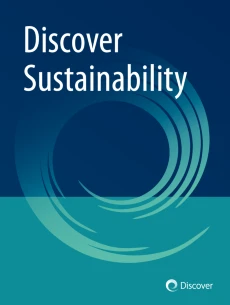
Discover Sustainability
Discover Sustainability is an open access journal publishing research across all fields relevant to sustainability.
Sikandar Ali Qalati
Kayhan Tajeddini
An exploratory research on bioplastic use in nigeria: employing a green nudge approach.
- Morolake Bolaji
- Motoi Kusadokoro
- Aziz Abdulai Adams

Tweeting climate change: analyzing actor diversity and influence in climate-change discourse post-Paris agreement

Enhancing cognitive dimensions in gifted students through future problem-solving enrichment programs
- Khaled Elballah
- Norah Alkhalifah
- Amal Alghamdi

Defining “success” in large-scale agricultural investment: a typology based on different stakeholder perspectives
- Logan Cochrane
- Melisew Dejene

Business readiness for dual transformation: an analysis of business capabilities for digital and sustainable transformation
- María del Socorro Encinas-Grijalva
- Flavio Arturo Olivieri-Sangiacomo
- Rafael Ravina-Ripoll

The role of border carbon adjustments and subsidies in incentivising investment: comparing equivalence in the context of steel recycling and decarbonisation
- Daniel Rossetto

Does corruption affect development outcomes differently in sub-Saharan Africa? Fresh evidence from Ghana
- Joseph Ato Forson

Unveiling the dynamics: how foreign aid shapes renewable energy, technology, globalization, and sustainable environments in BRICS nations
- Faiza Siddiqui
- Kong Yusheng
- Sonia Kumari

Fuelling entrepreneurial success: unravelling the nexus of financial resources, self-efficacy, outcome expectations and entrepreneurial intentions in Saudi micro and small enterprises
- Ali Saleh Alshebami

Fostering potential entrepreneurs: an empirical study of the drivers of green self-efficacy in Saudi Arabia
- Syed Ali Fazal
- Wala Sultan Alsultan

- Find a journal
- Publish with us
- Track your research
- Browse All Articles
- Newsletter Sign-Up
Environmental Sustainability →

- 17 Sep 2024
The Climate Targets Leaders Need to Know as Regulations Loom
Is "net zero" better than "carbon neutral"? New rules related to climate risk disclosure are raising the stakes for executives trying to set meaningful decarbonization goals. Michael Toffel demystifies the terms and nuances of climate impact reporting.

- 02 Aug 2024
How a Mission to Cut Food Waste Launched a Multimillion-Dollar Venture
Josh Domingues put purpose before profit when he created the Flashfood app to sell less-than-perfect groceries at discounted prices. A case study by Reza Satchu explores Domingues' successes and failures, and what other social entrepreneurs can learn.
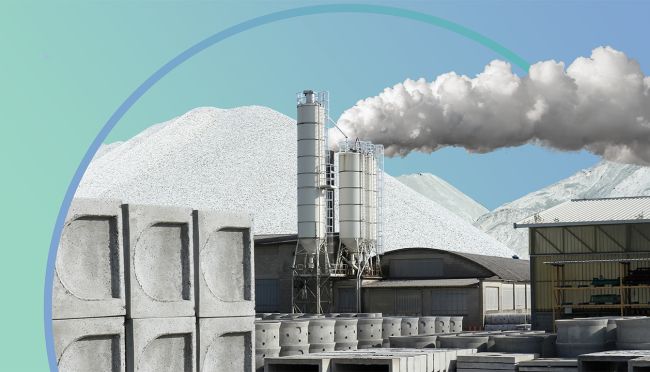
- 18 Jun 2024
- Research & Ideas
Industrial Decarbonization: Confronting the Hard Challenges of Cement
CEOs in construction and heavy industries must prioritize innovative abatement strategies to meet rising global demand for cement while reducing emissions. Research by Gunther Glenk offers an economic framework for identifying emission reduction options.

- 04 Jun 2024
- Cold Call Podcast
How One Insurtech Firm Formulated a Strategy for Climate Change
The Insurtech firm Hippo was facing two big challenges related to climate change: major loss ratios and rate hikes. The company used technologically empowered services to create its competitive edge, along with providing smart home packages, targeting risk-friendly customers, and using data-driven pricing. But now CEO and president Rick McCathron needed to determine how the firm’s underwriting model could account for the effects of high-intensity weather events. Harvard Business School professor Lauren Cohen discusses how Hippo could adjust its strategy to survive a new era of unprecedented weather catastrophes in his case, “Hippo: Weathering the Storm of the Home Insurance Crisis.”

- 23 Apr 2024
- In Practice
Getting to Net Zero: The Climate Standards and Ecosystem the World Needs Now
What can companies and regulators do as climate predictions grow grimmer? They should measure impact, strengthen environmental institutions, and look to cities to lead, say Robert Kaplan, Shirley Lu, and Rosabeth Moss Kanter.

- 22 Apr 2024
When Does Impact Investing Make the Biggest Impact?
More investors want to back businesses that contribute to social change, but are impact funds the only approach? Research by Shawn Cole, Leslie Jeng, Josh Lerner, Natalia Rigol, and Benjamin Roth challenges long-held assumptions about impact investing and reveals where such funds make the biggest difference.
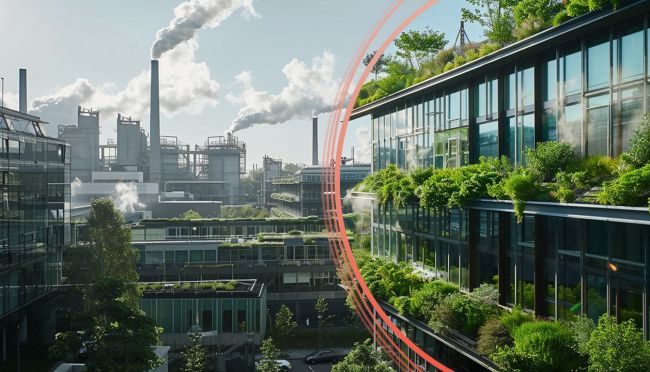
- 18 Mar 2024
When It Comes to Climate Regulation, Energy Companies Take a More Nuanced View
Many assume that major oil and gas companies adamantly oppose climate-friendly regulation, but that's not true. A study of 30 years of corporate advocacy by Jonas Meckling finds that energy companies have backed clean-energy efforts when it aligns with their business interests.

- 12 Mar 2024
How Used Products Can Unlock New Markets: Lessons from Apple's Refurbished iPhones
The idea of reselling old smartphones might have seemed risky for a company known for high-end devices, but refurbished products have become a major profit stream for Apple and an environmental victory. George Serafeim examines Apple's circular model in a case study, and offers insights for other industries.
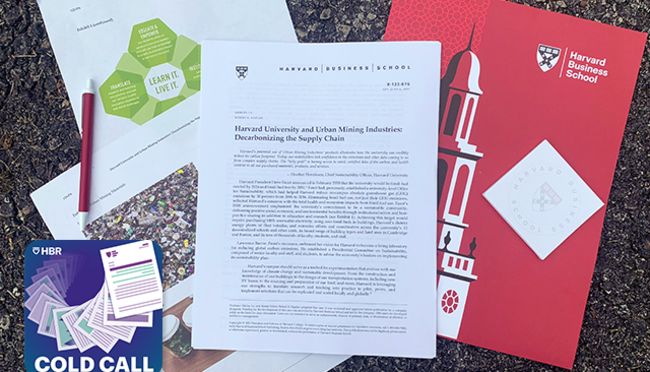
- 27 Feb 2024
How Could Harvard Decarbonize Its Supply Chain?
Harvard University aims to be fossil-fuel neutral by 2026 and totally free of fossil fuels by 2050. As part of this goal, the university is trying to decarbonize its supply chain and considers replacing cement with a low-carbon substitute called Pozzotive®, made with post-consumer recycled glass. A successful pilot project could jump start Harvard’s initiative to reduce embodied carbon emissions, but it first needs credible information about the magnitude and validity of potential carbon reductions. Harvard Business School professor emeritus Robert Kaplan and assistant professor Shirley Lu discuss the flow of emissions along the supply chain of Harvard University’s construction projects, the different methods of measuring carbon emissions, including the E-liability approach, and the opportunity to leverage blockchain technology to facilitate the flow of comparable and reliable emissions information in the case, “Harvard University and Urban Mining Industries: Decarbonizing the Supply Chain.”
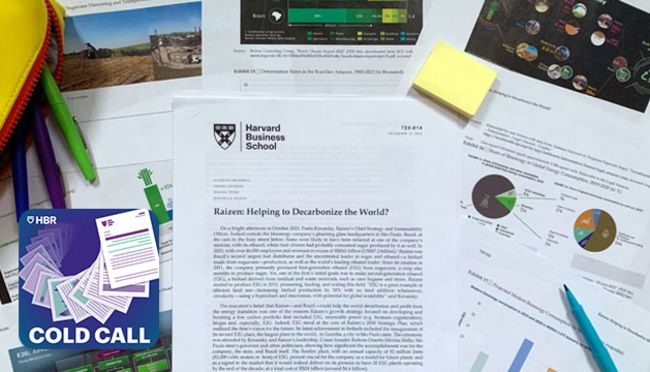
- 30 Jan 2024
Can Second-Generation Ethanol Production Help Decarbonize the World?
Raízen, a bioenergy company headquartered in São Paulo, is Brazil’s leader in sugar and ethanol production and the world’s leading ethanol trader. Since its creation in 2011, the company had primarily produced first-generation ethanol (E1G) from sugarcane, a crop that can also be used to produce sugar. In 2015, Raízen also started to produce second-generation ethanol (E2G), a biofuel derived from residual and waste materials, such as cane bagasse and straw – which don’t compete with food production. The company’s growth strategy focused on developing and boosting a low carbon portfolio that focused on E2G, based on the belief that Raízen—and Brazil—could help the world decarbonize and profit from the energy transition. Paula Kovarsky, Raízen’s chief strategy and sustainability officer, was confident the company could become a global green energy champion. But after the board’s approval for the first round of E2G investments, she faced a complex challenge: how to expand the market for second-generation ethanol and other sugar-cane waste biofuels, in order to ensure Raízen’s long-term growth? Harvard Business School professor Gunnar Trumbull and Kovarsky discuss the company’s strategy for bringing second-generation ethanol to the world in the case, “Raízen: Helping to Decarbonize the World?”

- 29 Jan 2024
Do Disasters Rally Support for Climate Action? It's Complicated.
Reactions to devastating wildfires in the Amazon show the contrasting realities for people living in areas vulnerable to climate change. Research by Paula Rettl illustrates the political ramifications that arise as people weigh the economic tradeoffs of natural disasters.

- 17 Jan 2024
Are Companies Getting Away with 'Cheap Talk' on Climate Goals?
Many companies set emissions targets with great fanfare—and never meet them, says research by Shirley Lu and colleagues. But what if investors held businesses accountable for achieving their climate plans?
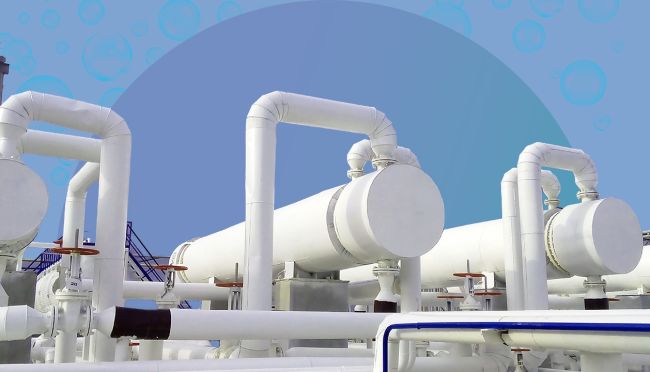
- 09 Jan 2024
Could Clean Hydrogen Become Affordable at Scale by 2030?
The cost to produce hydrogen could approach the $1-per-kilogram target set by US regulators by 2030, helping this cleaner energy source compete with fossil fuels, says research by Gunther Glenk and colleagues. But planned global investments in hydrogen production would need to come to fruition to reach full potential.

- 02 Jan 2024
Should Businesses Take a Stand on Societal Issues?
Should businesses take a stand for or against particular societal issues? And how should leaders determine when and how to engage on these sensitive matters? Harvard Business School Senior Lecturer Hubert Joly, who led the electronics retailer Best Buy for almost a decade, discusses examples of corporate leaders who had to determine whether and how to engage with humanitarian crises, geopolitical conflict, racial justice, climate change, and more in the case, “Deciding When to Engage on Societal Issues.”

- 12 Sep 2023
- What Do You Think?
Who Gets the Loudest Voice in DEI Decisions?
Business leaders are wrestling with how to manage their organizations' commitment to diversity, equity, and inclusion. If you were a CEO, which constituency would you consider most: your employees, customers, or investors? asks James Heskett. Open for comment; 0 Comments.

- 18 Jul 2023
Will Global Demand for Oil Peak This Decade?
The International Energy Agency expects the world's oil demand to start to ebb in the coming years. However, Joseph Lassiter and Lauren Cohen say the outlook will likely be more complex, especially as poor and fast-growing regions seek energy sources for their economies.
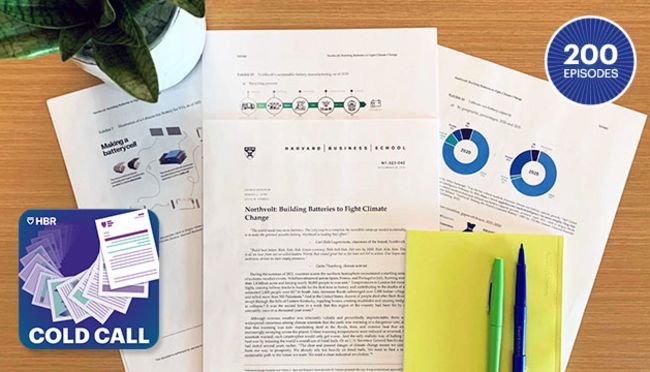
- 28 Apr 2023
Sweden’s Northvolt Electric Battery Maker: A Startup with a Mission
In Stockholm, Sweden an upstart battery maker, Northvolt, is trying to recreate the value chain for European car manufacturers making the switch to EVs. With two founders from Tesla and two experienced financiers at the helm, the company seems bound for success. But can they partner with government, scale fast enough, and truly be part of the climate solution? Harvard Business School professor George Serafeim discusses what it takes to scale a business—the right people, in the right place, at the right time—with the aim of providing a climate solution in the case, “Northvolt, Building Batteries to Fight Climate Change.” As part of a new first-year MBA course at Harvard Business School, this case examines the central question: what is the social purpose of the firm?
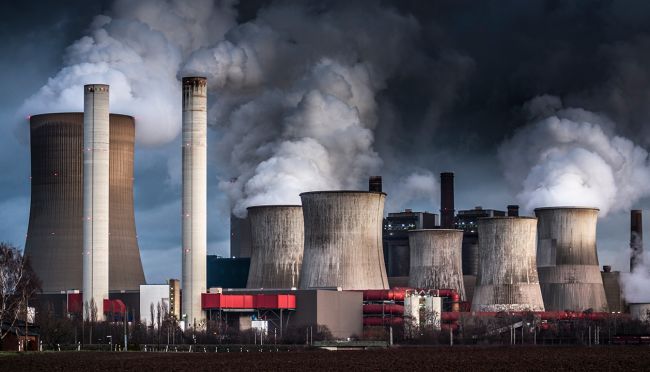
- 18 Apr 2023
What Happens When Banks Ditch Coal: The Impact Is 'More Than Anyone Thought'
Bank divestment policies that target coal reduced carbon dioxide emissions, says research by Boris Vallée and Daniel Green. Could the finance industry do even more to confront climate change?

- 11 Apr 2023
A Rose by Any Other Name: Supply Chains and Carbon Emissions in the Flower Industry
Headquartered in Kitengela, Kenya, Sian Flowers exports roses to Europe. Because cut flowers have a limited shelf life and consumers want them to retain their appearance for as long as possible, Sian and its distributors used international air cargo to transport them to Amsterdam, where they were sold at auction and trucked to markets across Europe. But when the Covid-19 pandemic caused huge increases in shipping costs, Sian launched experiments to ship roses by ocean using refrigerated containers. The company reduced its costs and cut its carbon emissions, but is a flower that travels halfway around the world truly a “low-carbon rose”? Harvard Business School professors Willy Shih and Mike Toffel debate these questions and more in their case, “Sian Flowers: Fresher by Sea?”

- 28 Mar 2023
BMW’s Decarbonization Strategy: Sustainable for the Environment and the Bottom Line
In mid-2022, automakers, consumers, regulators, and investors were focusing on the transition from internal combustion engine (ICE) vehicles to electric vehicles (EV). While this would reduce tail-pipe emissions, it ignored the fact that the production of EVs—and especially their batteries—increases emissions in the supply chain. Many automakers were announcing deadlines by which they would stop selling ICE vehicles altogether, buoyed by investment analysts and favorable press. But BMW decided to focus on lifecycle emissions and pursued a flexible powertrain strategy by offering vehicles with several options: gasoline and diesel-fueled ICE, plug-in hybrid electric vehicles, and battery electric vehicles. That approach received a frostier reception in the stock market. Assistant Professor Shirley Lu discusses how BMW plans to convince stakeholders that its strategy is good for both the environment and the company’s financial performance in the case, “Driving Decarbonization at BMW.”

IMAGES
VIDEO
COMMENTS
The impact of land-use change on species diversity and ecosystem functioning in agricultural landscapes The role of disturbances such as fire and drought in shaping arid ecosystems The impact of climate c…
Get inspired by our list of sustainability research topics to write a paper, thesis, or do a course project on green campus issues.
For sustainability and green technology dissertation topics: Research recent environmental challenges. Explore innovative green solutions. Examine policy and industry …
With 300 diverse topics organized into 10 categories, this list covers a wide range of critical areas within environmental studies, including climate change, biodiversity, sustainable …
Global Environmental Challenges: Papers examining critical environmental challenges faced by different regions, including climate change, biodiversity loss, pollution, and resource depletion.
We are proud to introduce Current Research in Environmental Sustainability (CRSUST), a new primary research journal from Elsevier. CRSUST publishes original papers and short …
New research on environmental sustainability from Harvard Business School faculty on issues including the role of companies to mitigate climate change, corporate social responsibility, reporting to stakeholders, government relations …